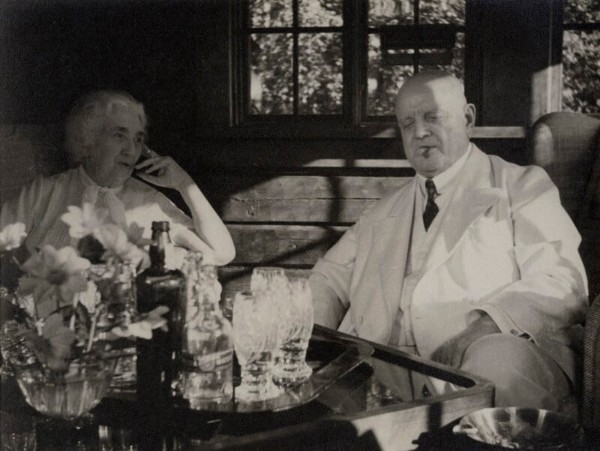Maria Herz (née Bing) (1878–1950) came from Cologne where her family ran a successful textile business. The youngest daughter, Maria, played cello in the family string quartet but actually loved the piano more. It was said that her performance of Schumann’s Arabeske could bring an audience to tears.
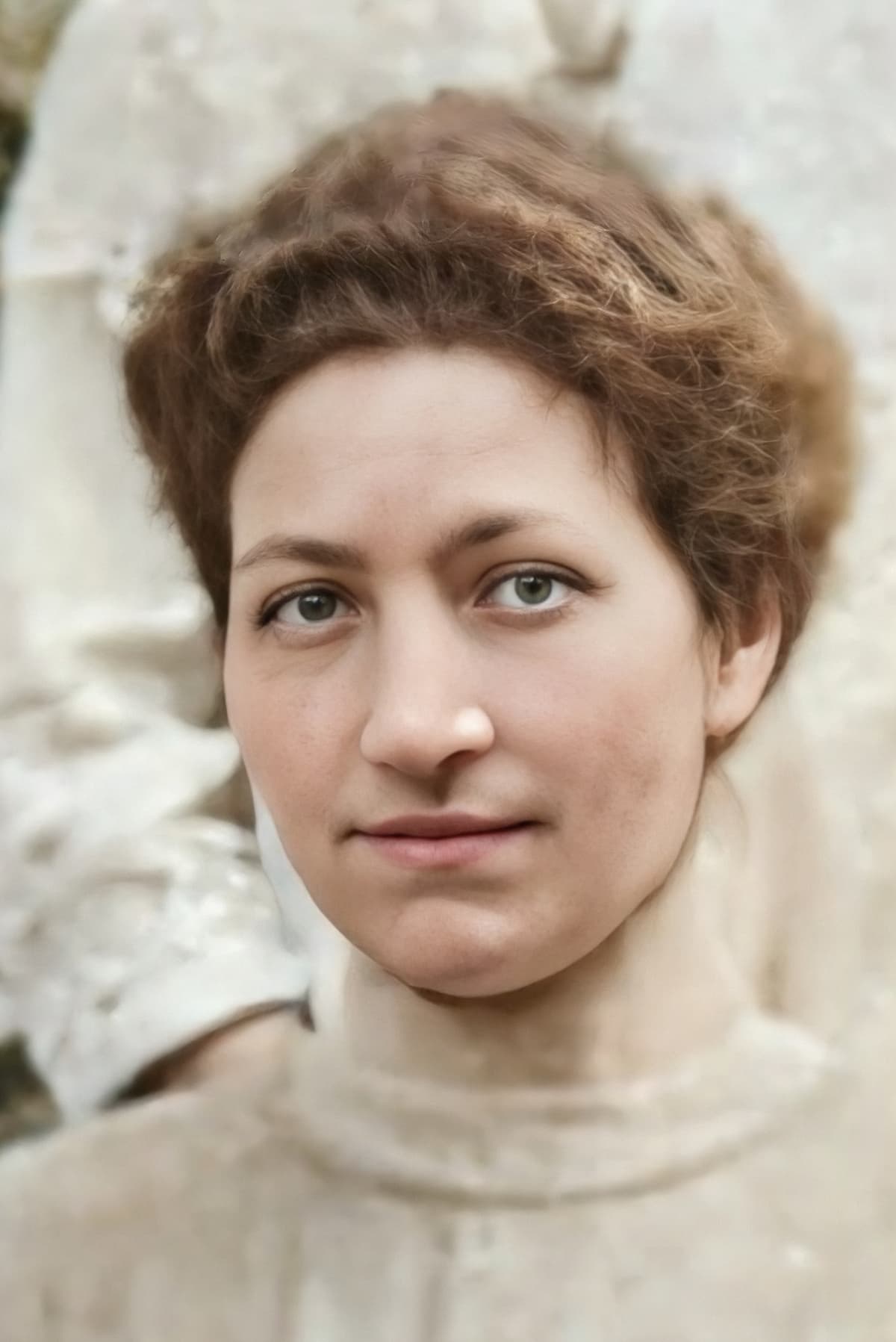
Maria Herz (Zurich Central Library) (Colouized)
She studied music in Cologne, including with Max Pauer, who had been a student of Mozart’s son Franz Xaver. In addition to studying piano, cello and composition, she also was an accomplished lecturer on music.
In 1901, she married the chemist Dr Albert Herz and moved with him to England, living near Manchester.
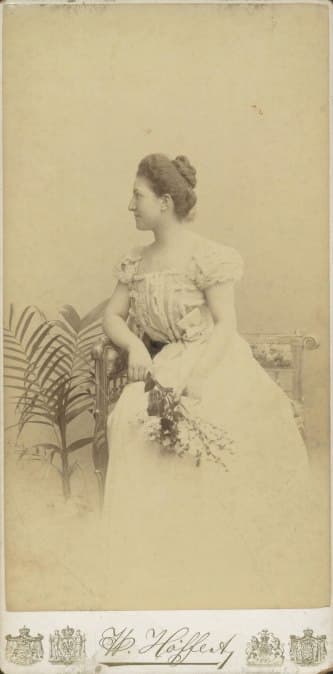
Maria Herz on her wedding day, 1901 (Zurich Central Library)
Between 1902 and 1910, she had four children and kept up her musical composition, performances, and lecturing. In 1914, while on a visit to Cologne with her family, the outbreak of war meant that returning to England was not possible. Her husband was drafted into the German Army, which broke his health and in 1920 he died of the Spanish flu.
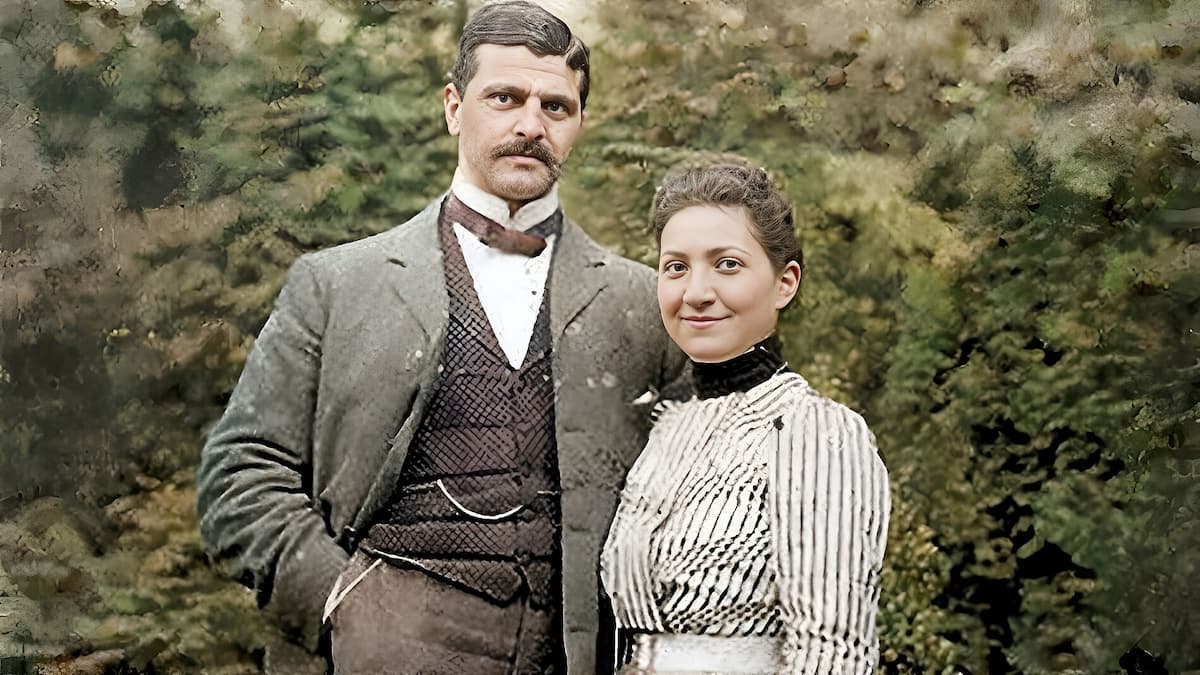
Maria and Albert Herz (Zurich Central Library) (colourized)
She and her brother Moritz Bing combined households – his wife had also been a victim of the Spanish flu – and with his two children and her four, they had a full house. She continued to compose, encouraged by people such as István Ipolyi, the violist of the Budapest String Quartet. In Cologne, Otto Klemperer of the Cologne Opera and conductor Hermann Abendroth supported her music. Her works were performed, and her Four Little Orchestral Movements, Op. 8, was given its premiere at the Cologne Gürzenich on 15 October 1928, conducted by Abendroth.
During her lifetime, only five songs in 1910 and, in 1927, an arrangement of Bach’s Chaconne for string quartet were published. Her estate, however, consisted of thirty orchestral works, solo concertos, chamber music, and songs with piano accompaniment, most written between 1920 and 1935.
What’s interesting is that after 1926, her musical works were done under her husband’s name, combined with hers: Maria Herz wrote as Albert Maria Herz, both honouring her husband and mixing up the waters a bit – Carl Maria von Weber, for example.
As the National Socialists consolidated their power, Maria moved more and more, seeking a place where a Jewish composer could work. She travelled and stayed with family members in Switzerland, France, and England, before returning to Germany. Having lost everything in Germany, she emigrated to Birmingham, England, in 1938 with her youngest son, and lived in the country, listening to the radio, and writing her music lectures. She seems to have stopped composing around 1935. She moved to the US and died in New York in 1950 and is buried in Springfield, New Jersey.
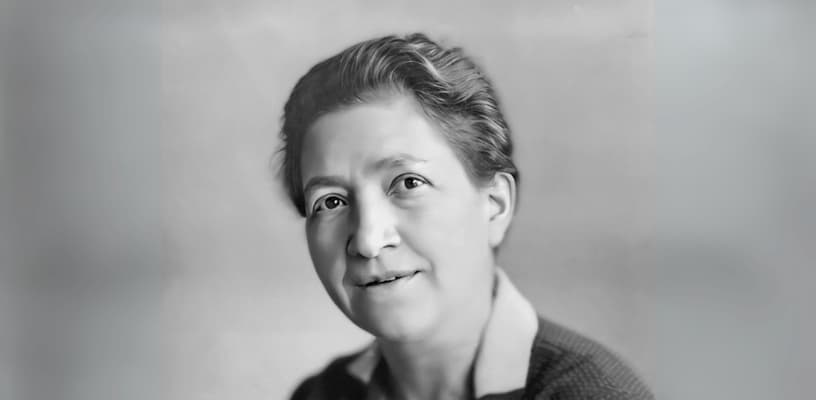
Maria Herz late in life ((Zurich Central Library)
Her rediscovery comes from her Switzerland-based grandson, Albert Herz, who brought her manuscripts from New York to Switzerland in 1995 and donated them to the Zurich Central Library. Boosey and Hawkes have started to publish her works and they are making their way onto recordings (Capriccio) in performances by Rundfunk-Sinfonieorchester Berlin (RSB), conducted by Christiane Silber.
Her Orchestral Suite, Op. 13, written in 1932, takes us through music history, from Renaissance sarabandes to Baroque chorales and canons through neoclassicism. She ends this tour-de-force with a very proper fugue, but this is not your teacher’s Bach fugue – this is a fugue with a bass drum, and then there’s a second fugue, and, unbelievably, a third fugue theme enters. To cap all of this, she then combines all three themes into an ending that belies the normal static nature of a fugue with a roguish ending.
Maria Herz: Orchestra Suite, Op. 13 – VII. Allegro (Berlin Radio Symphony Orchestra (Rundfunk-Sinfonieorchester Berlin); Christiane Silber, cond.)
Rediscover the music of Maria Herz and see how major a composer previously side-lined by politics and social mores can be!
For more of the best in classical music, sign up for our E-Newsletter

